Blogs
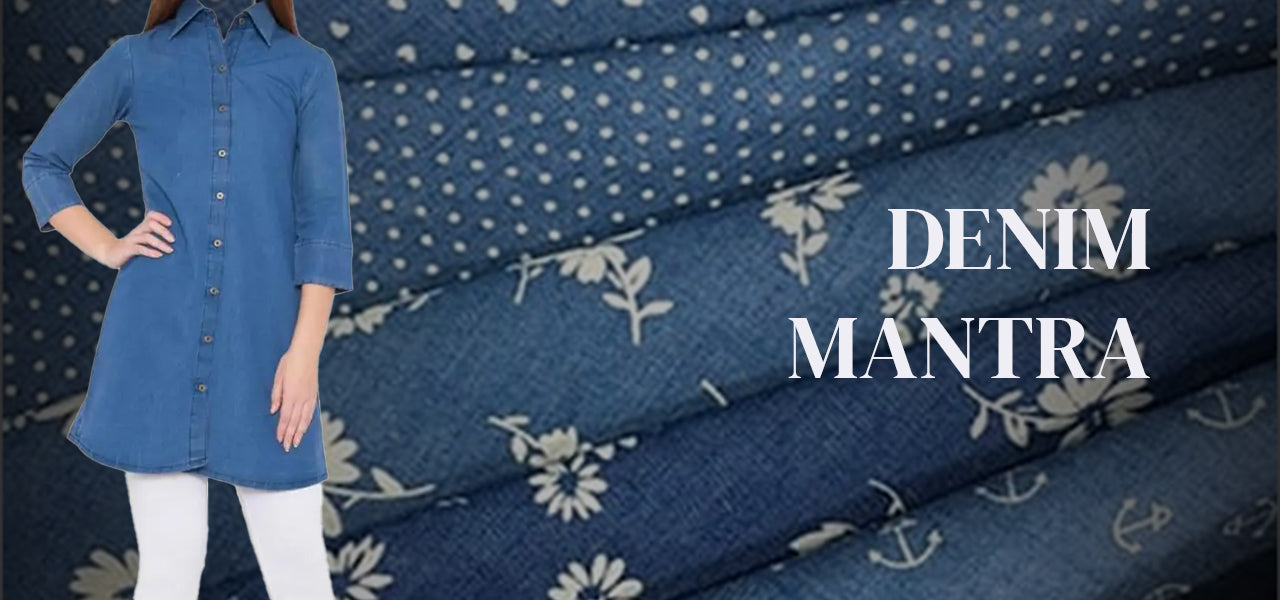
The French city of Nîmes is where denim fabric first appeared in the 17th century. Serge de Nîmes, which translates as "sturdy fabric from Nîmes," is where the word "denim" originates. Its distinct...
Read more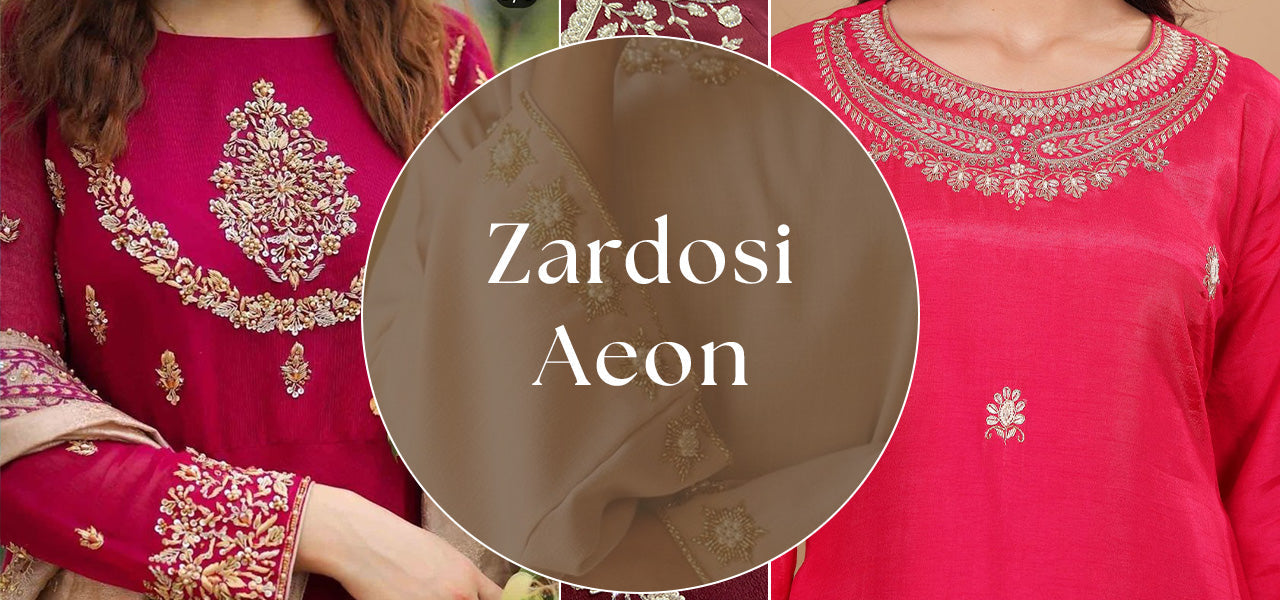
The opulent needlework known as zardozi work originated in ancient Persia and was brought to India during the Mughal dynasty, especially during the reign of Emperor Akbar. "Zardozi" is derived from...
Read more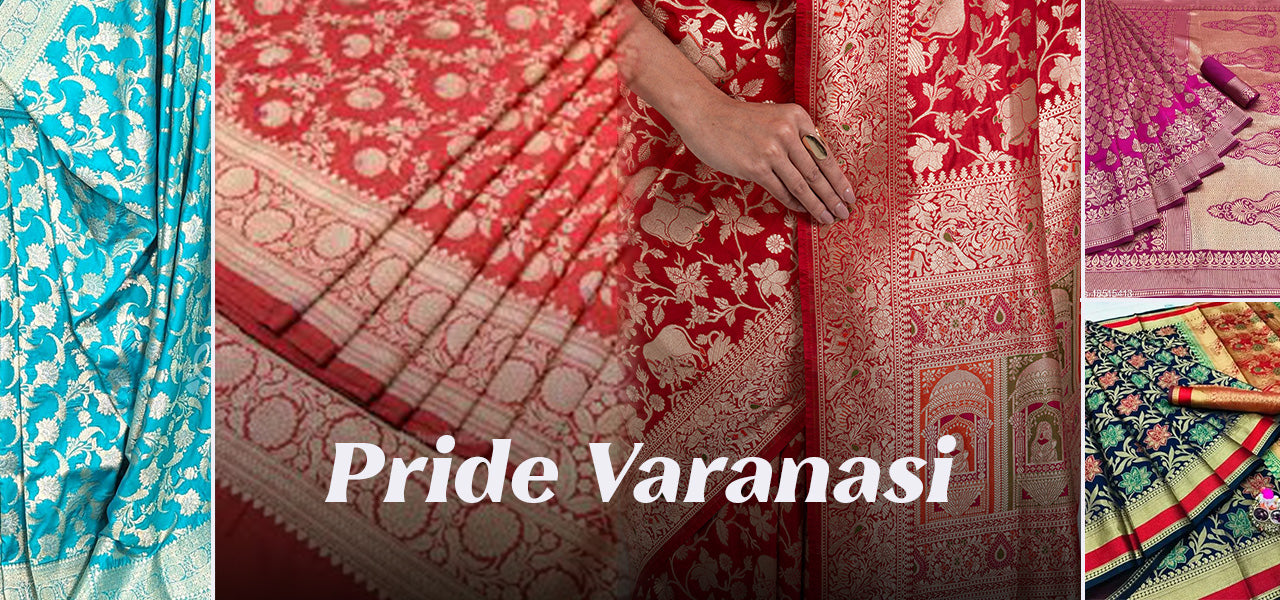
The old city, which is surrounded by Varuna and Asi, is situated on the north bank of the Ganges. Varanasi is recognised as the "city of light" and "the shining city as a great place of learning" b...
Read more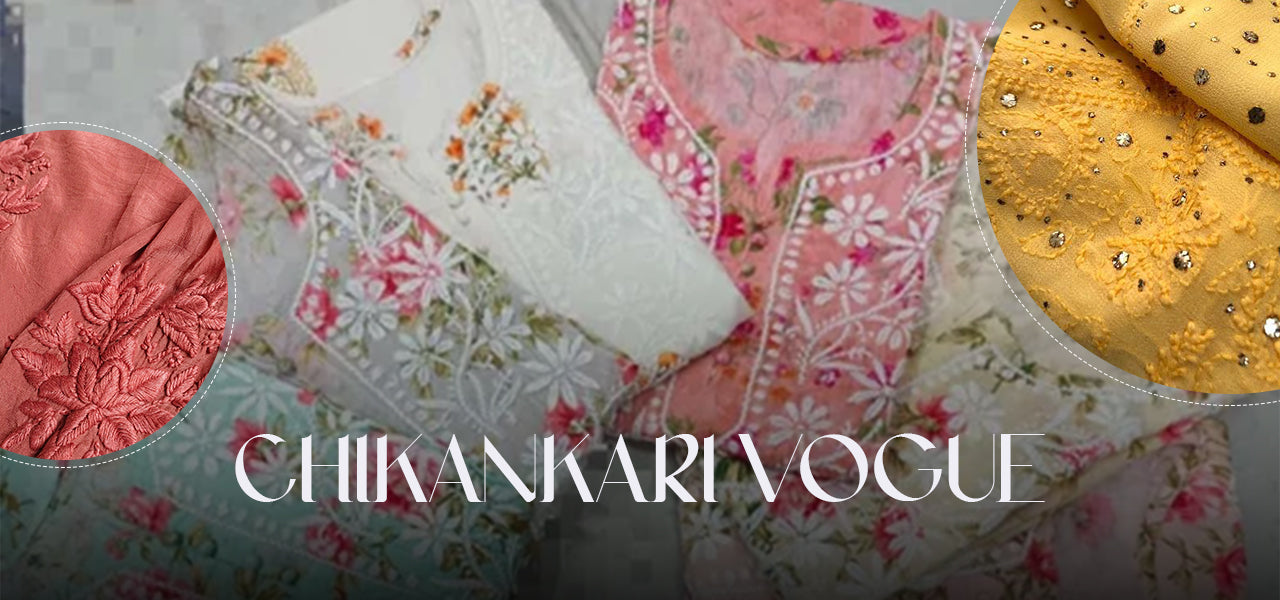
The one-handed embroidery technique known as Lucknow and Chikankari work has won over the hearts of ladies all throughout the nation. This needlework has significantly increased in size. These garm...
Read more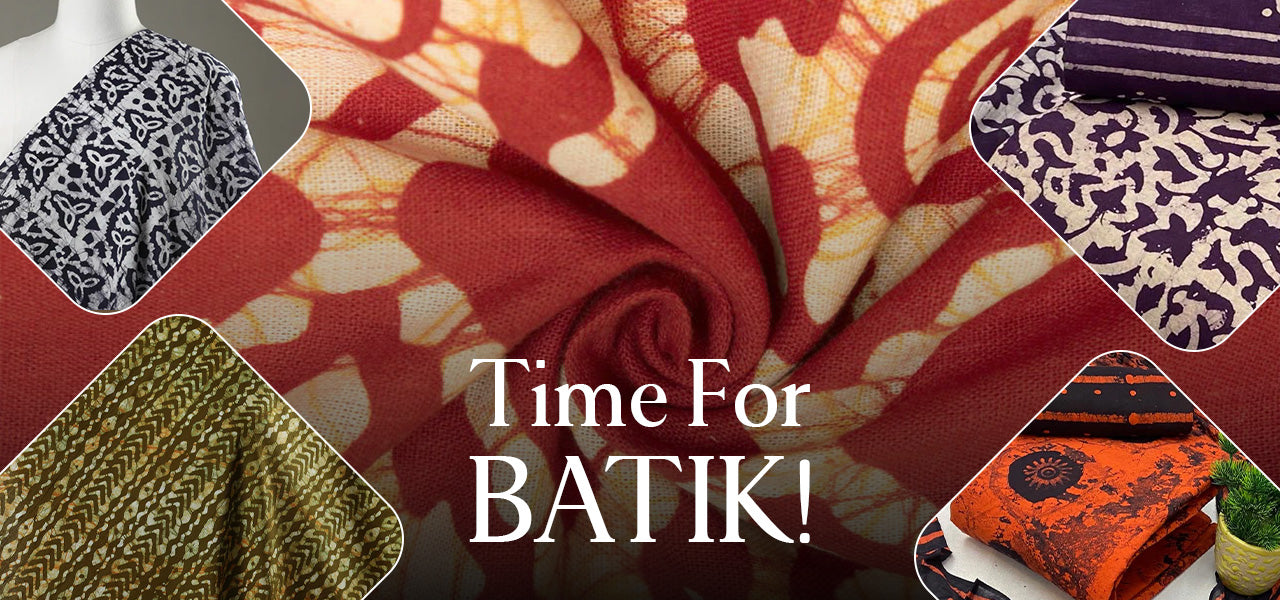
Ladies who like dressing in ethnic clothes are particularly fond of dress materials with batik motifs. The traditional Indonesian method of printing fabric called batik uses wax. Even when ...
Read more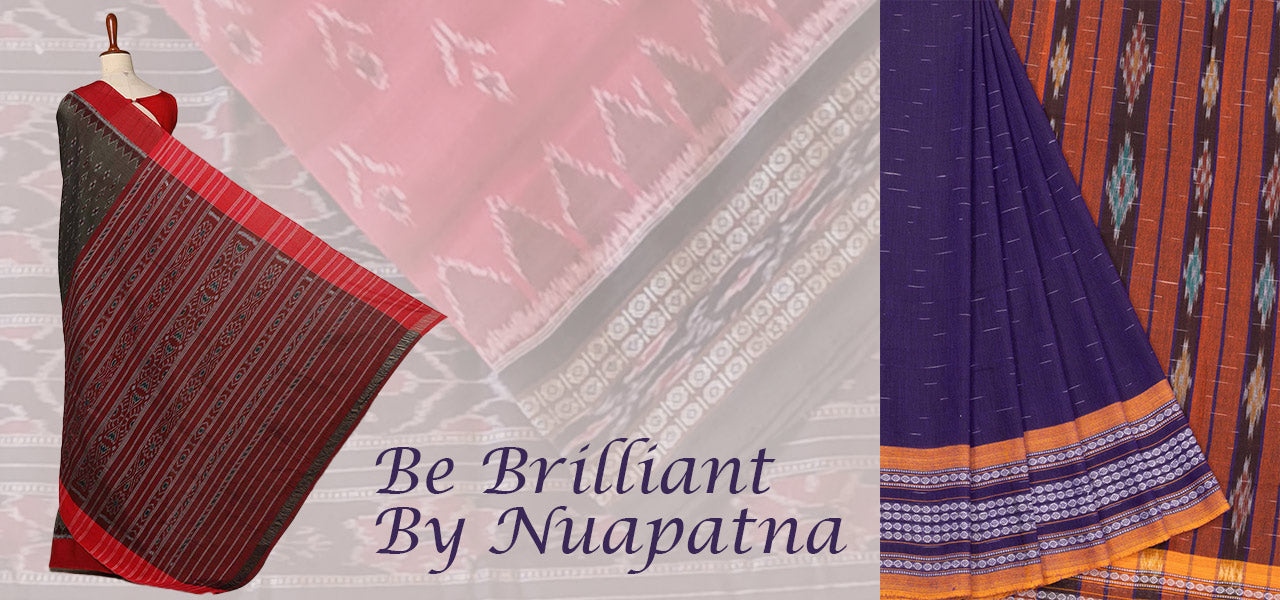
The traditional handwoven Nuapatana Cotton Saree is deeply rooted in the cultural and artisanal traditions of Odisha, India. Expert weavers from the Boyanika, or Weaver community, in Nuapatana, a s...
Read more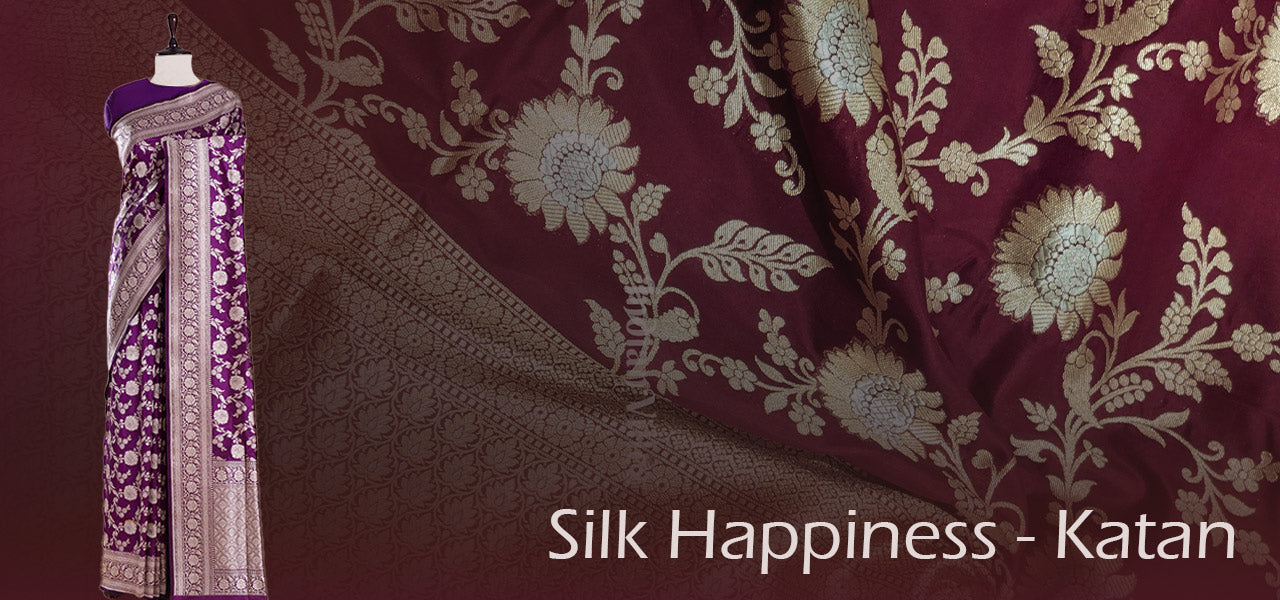
Katan and Khaddi Banarasi silk sarees are more than just beautiful apparel; they are living symbols of India's rich cultural heritage and the incredible ingenuity of its skilled weavers. Each saree...
Read more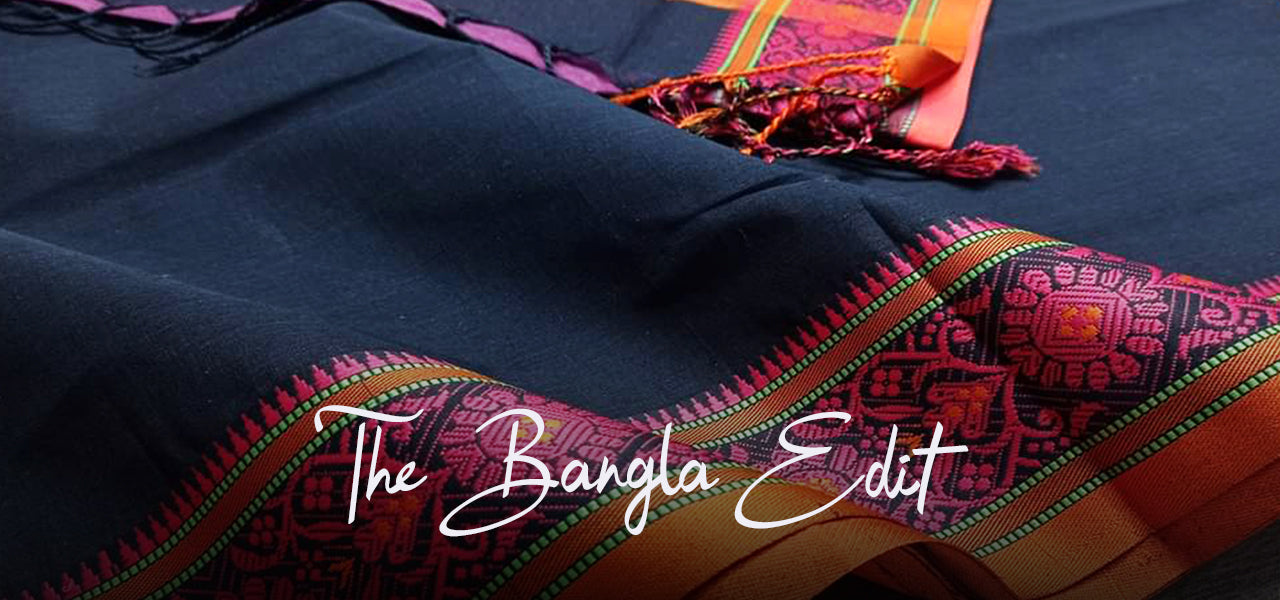
Tangail sarees originate from the Tangail district in Bangladesh, renowned for its rich weaving heritage that dates back centuries.The Hindu weaver caste, who immigrated to this area from the India...
Read more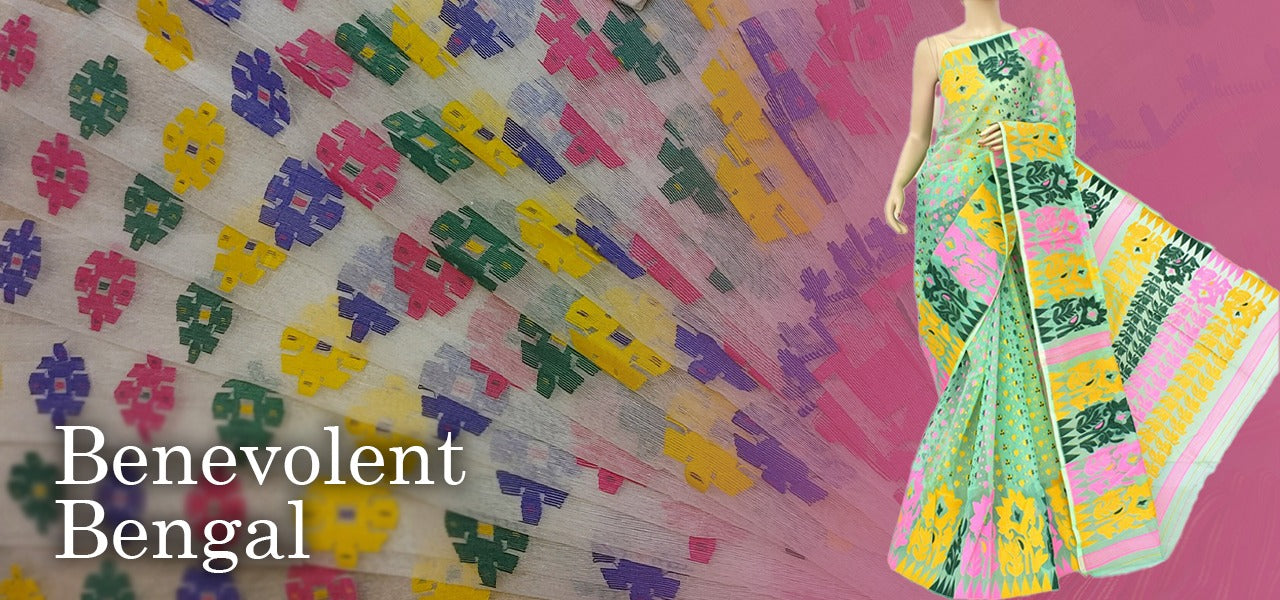
The origins of Jamdani sarees can be found in West Bengal, India, as well as ancient Bengal and modern-day Bangladesh. The Persian word "Jamdani," which combines the words "Jam" (flower) and "Dani"...
Read more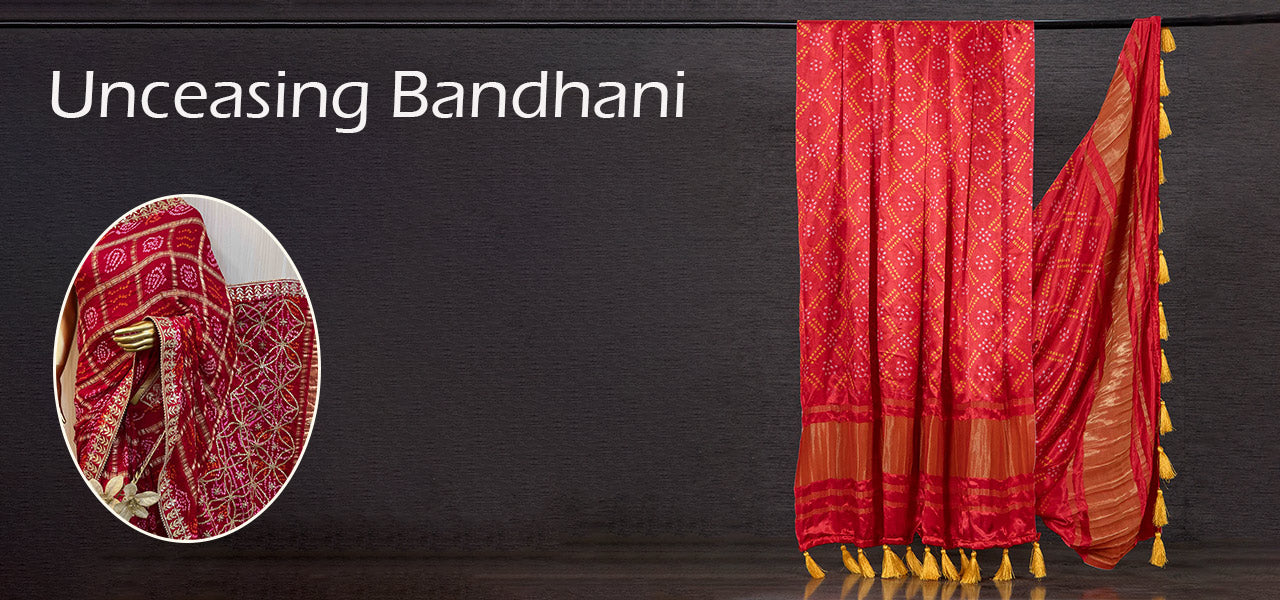
The expression Bandhani originates from the word Bandhan, which implies binding up.Bandhani Sarees are a masterwork of Indian textiles that exemplify the ideal fusion of tradition and modernity. Ba...
Read more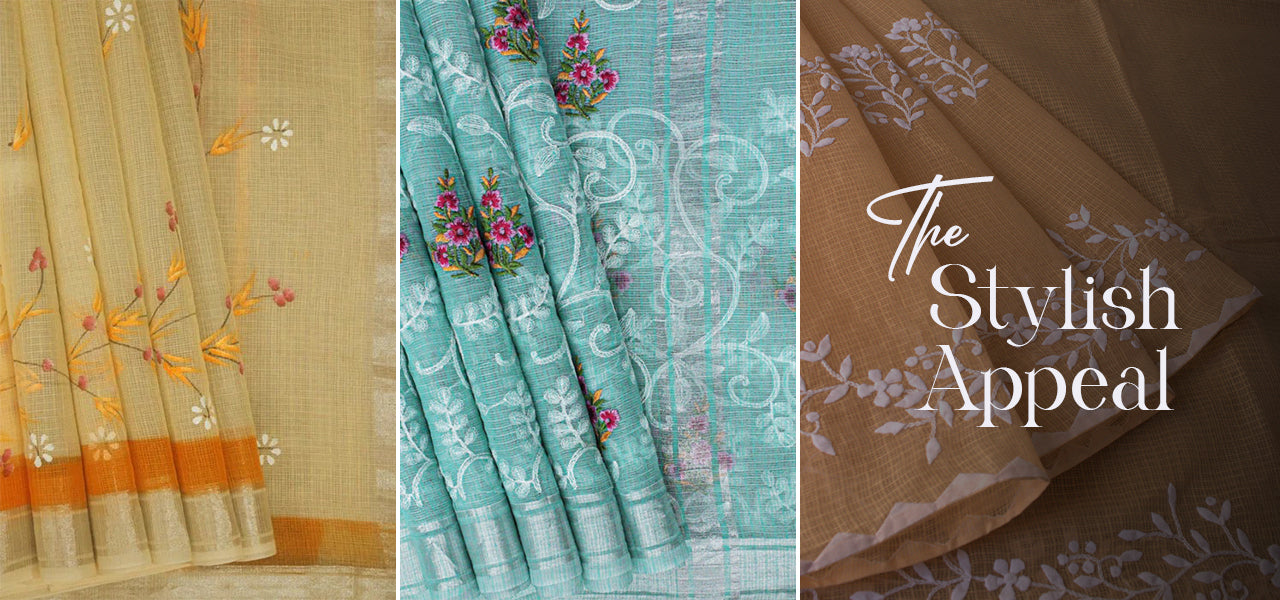
A Kota saree is a lightweight, exquisitely woven traditional Indian saree that comes from the Rajasthani town of Kota. It is also known as "Kota Silk" or "Kota Doria." The delicate, airy texture an...
Read more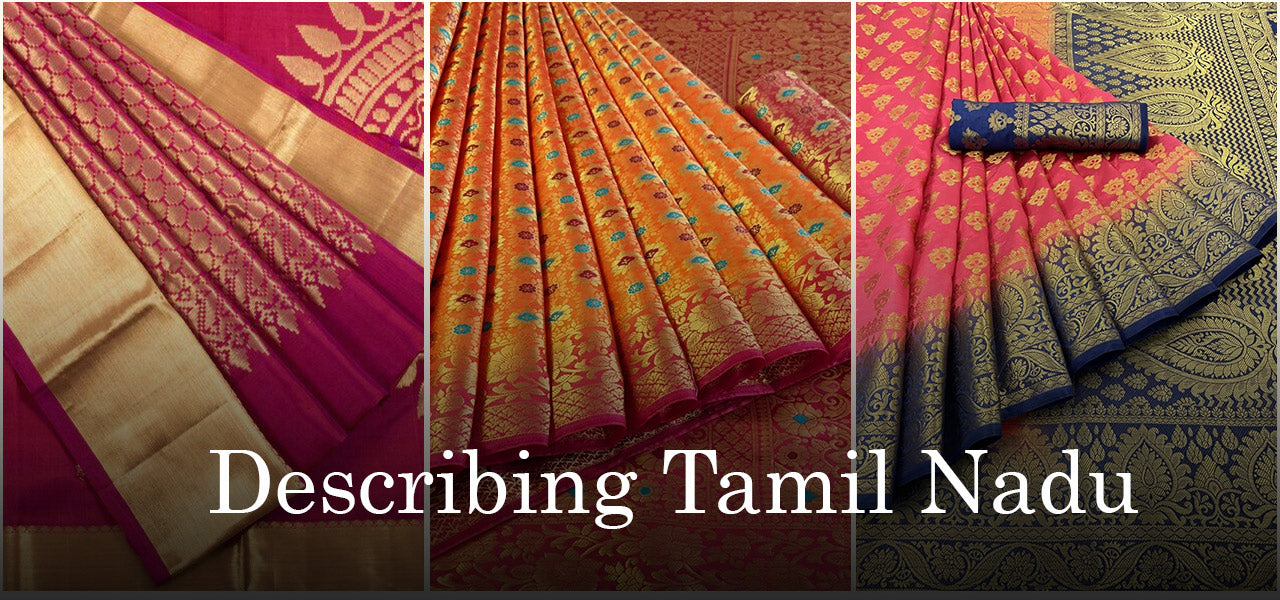
The city of Kanchipuram combines modern beauty with age-old customs. Kanjivaram sarees are the sacred garments of festive occasions, woven by expert weavers descended from Sage Markhendeya. You are...
Read more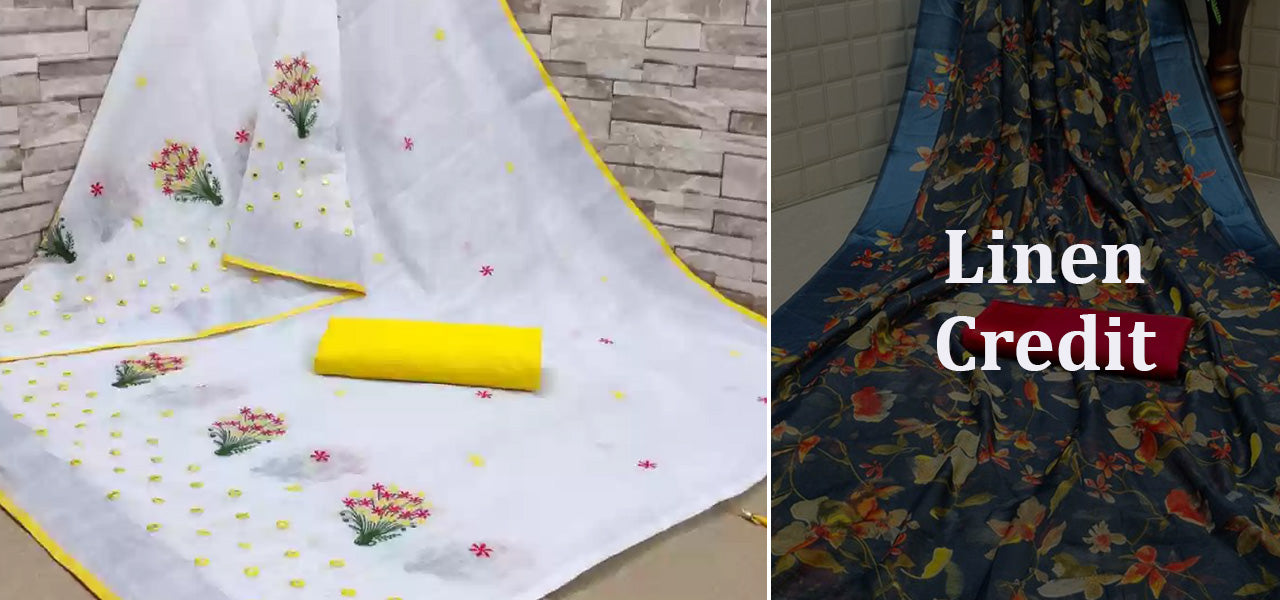
The Indian subcontinent's ancient civilisations are the source of the lengthy history of linen sarees. One of the earliest fabrics known to man is linen, which is derived from the flax plant and ha...
Read more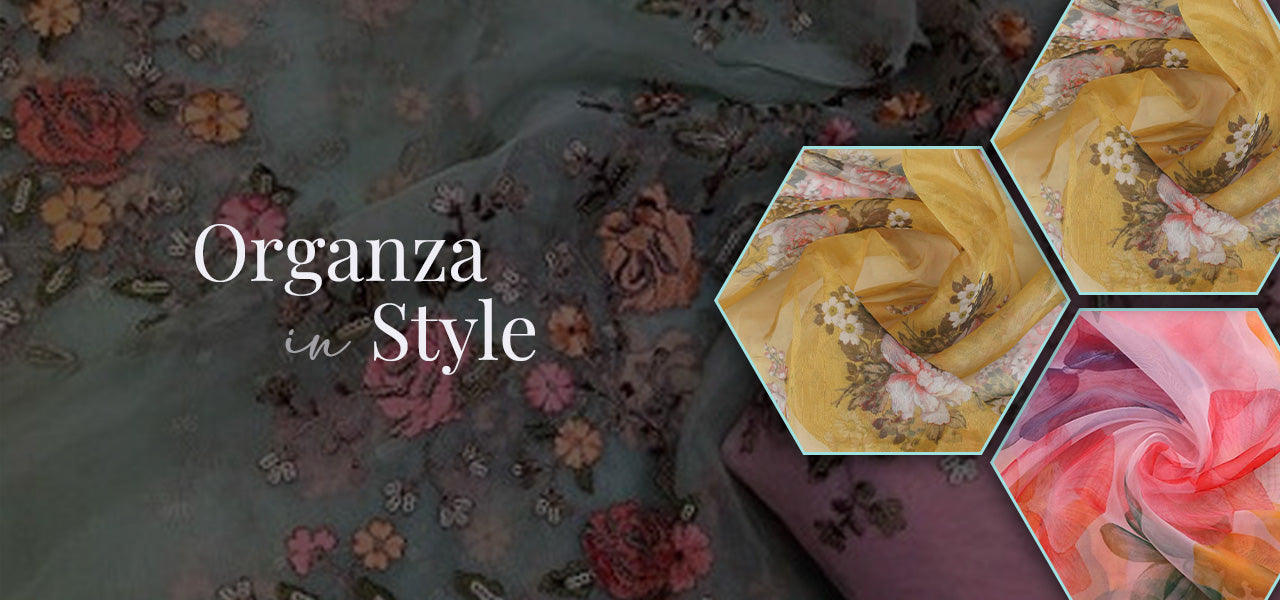
In the world of fashion, textiles are everything. The correct textile is used to create every stylish, sophisticated article of apparel. Organza is one such fabric that has been around for generati...
Read more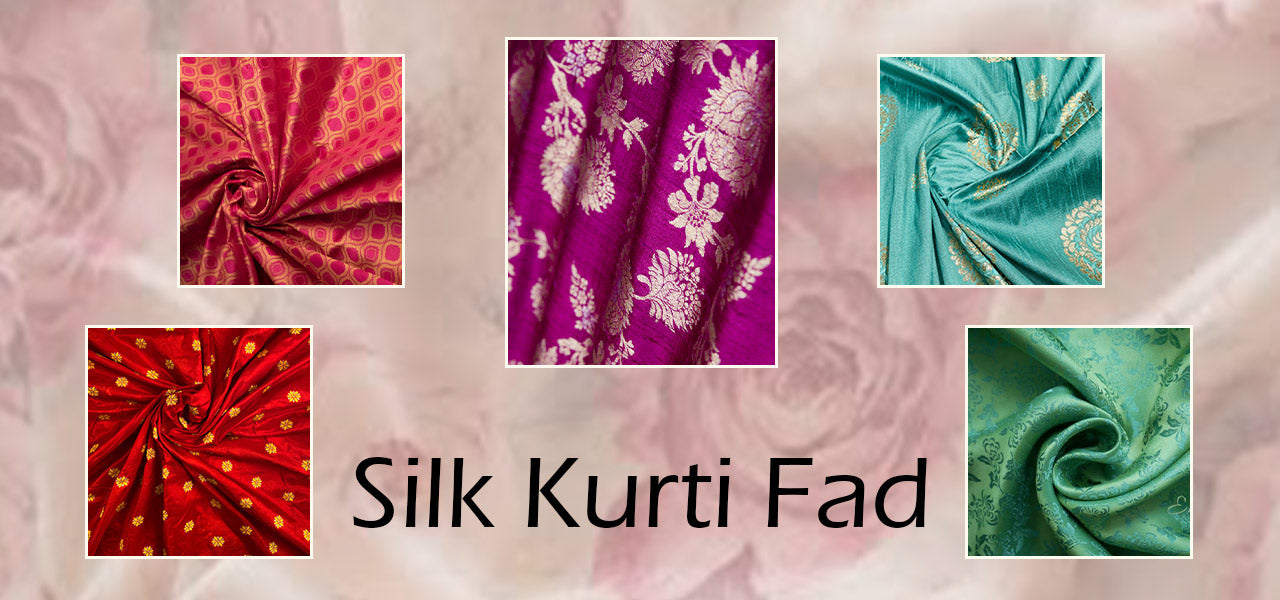
Popular traditional clothing like the silk kurti has a long history influenced by many different cultures and historical periods.The mythical Empress Leizu is credited with finding silk when a silk...
Read more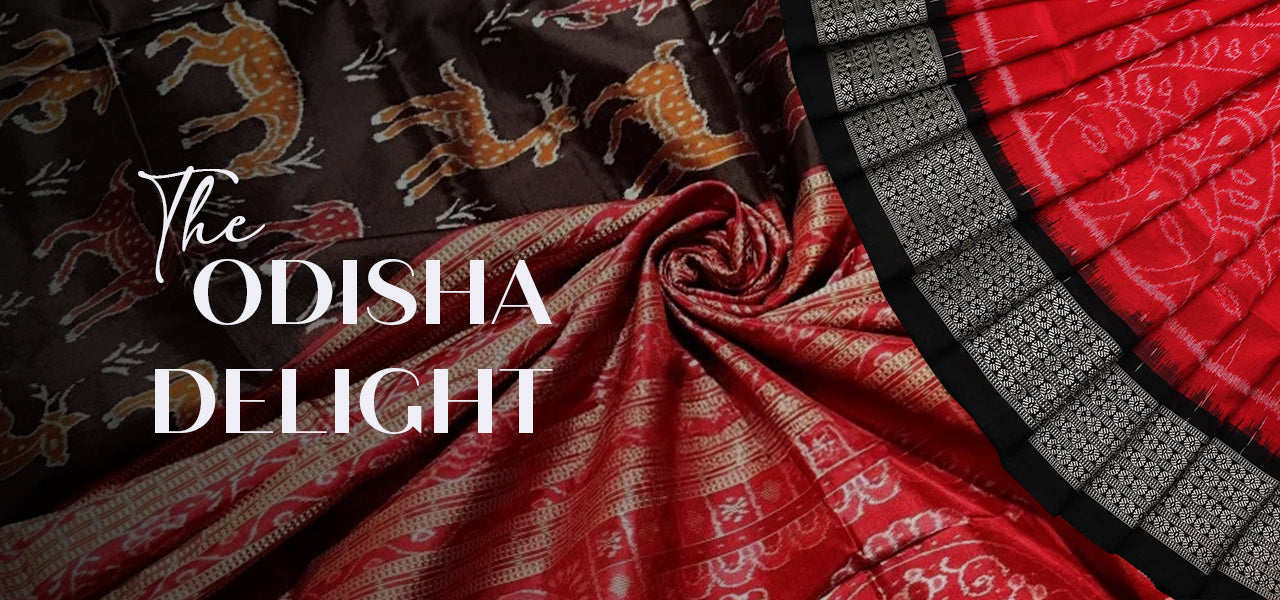
The Bandha Bandha Kala saree, also known as the Bandha saree, originates from Odisha, India, particularly from the villages of Nuapatna and Cuttack.Bandha is the term for the tie-dye or ikat proces...
Read more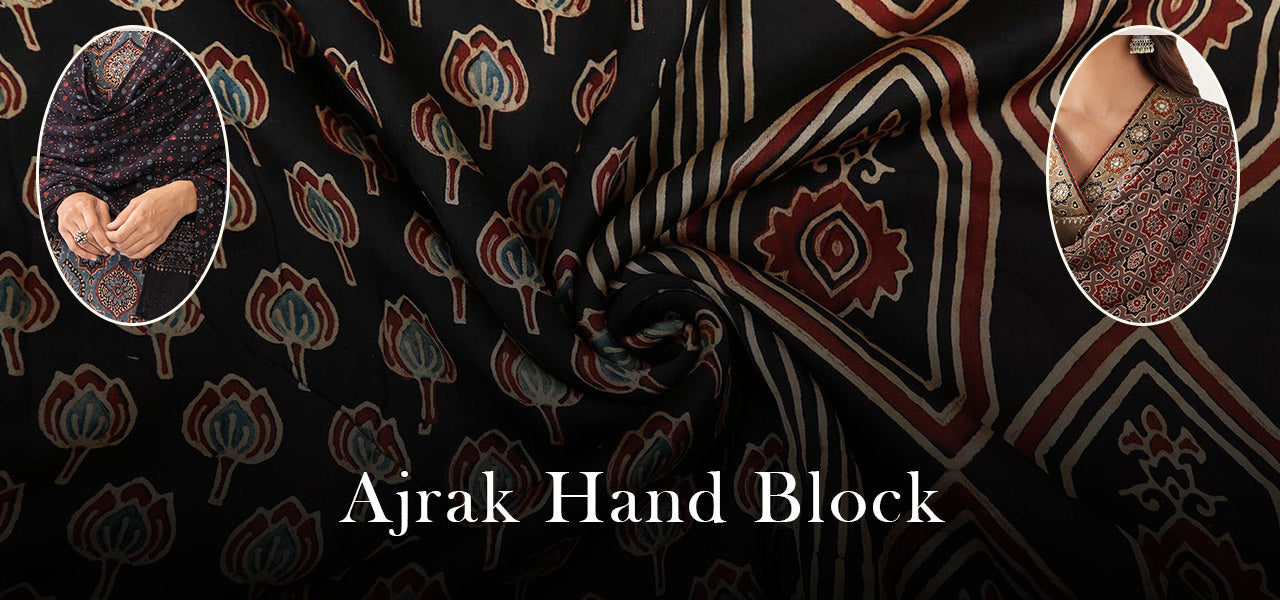
Ajrak is a traditional hand-block printing technique that originated in the Sindh region, which now spans parts of Pakistan and India. It has deep historical roots, dating back over 5,000 years, in...
Read more
